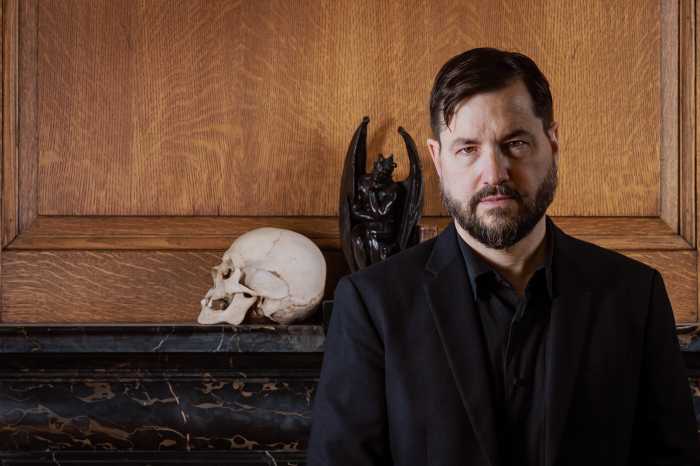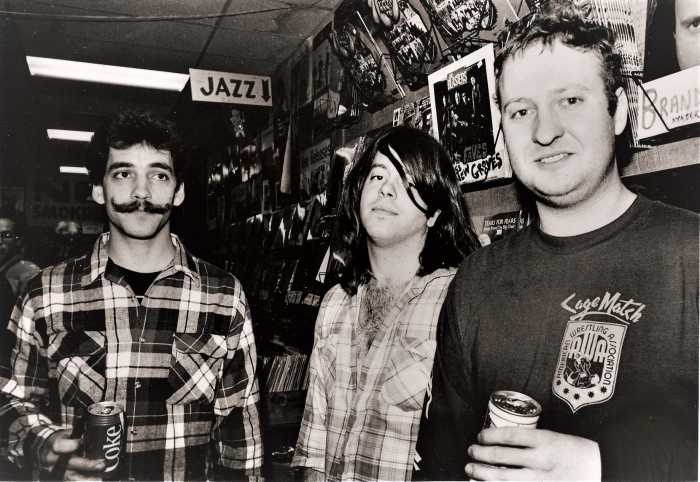French opera often plays a distant third wheel to the Italian and German repertory wings of major opera houses. These days, even Russian and Czech works — since they tend to be cast with and conducted by native speakers — often get more idiomatic performances than their Gallic competition.
Charles Gounod’s “Faust” actually opened the Old Met back in 1883 — yet it was sung in Italian, with a Swedish soprano and a French mezzo surrounded by Italians. Francophone or French stylists have never crowded the company’s ranks. Plus, after 1920, the whole French singing tradition declined, producing fewer international class singers.
In the old house’s last decades, only Régine Crespin, Gabriel Bacquier, and Rita Gorr enjoyed star status, with José van Dam alone assuming their mantle afterwards. Several French singers figure in the Met’s planning — mainly Natalie Dessay and Roberto Alagna, with Ludovic Tézier — one hopes — an increasingly familiar presence.
For the recent revival of Laurent Pelly’s cartoonish production of Donizetti’s “comedy of sentiment,” “La Fille de Regiment” (heard December 29), the only native francophone on hand was not singing — French-Canadian conductor Yves Abel. Abel did a fine job with the forces he had before him, but couldn’t produce linguistic finesse in a few rehearsals.
The vocally excellent, enthusiastically-offered Tonio of Lawrence Brownlee dominated the evening. Brownlee is always a welcome presence; he never shortchanges the audience in terms of winning energy. His tenor is really capable of the demands of this bel canto role, which requires not only a fearless string of high Cs but also a beautifully articulated and sustained line. These demands are typified by Tonio’s first and second act arias, both of which won Brownlee prolonged ovations.
I’m not the only commentator who finds Brownlee’s instrument more beautiful in timbre than that of his higher profile, more album cover-ready colleague/ rival Juan Diego Flórez, who helped create this production. Brownlee also has more range as an actor, whereas Flórez, in my experience, always offers essentially the same characterization. I wish we had the Ohioan rather than the Peruvian tenor headlining next year’s new production of another Donizetti comedy, “L’elisir d’amore.”
Spunky Georgian soprano Nino Machaidze has tended, not without reason, to be a target of online complaints about looks casting and recording contracts being awarded too quickly. Her Met debut as Gilda was quite raw, and her recent debut CD lacks distinction.
Her voice is not fully worked through — it often projects a shrill edge, and her coloratura ability, save for some pretty exciting staccati, is iffy — plus her French was utterly incomprehensible in song and dialog. But she presented Marie’s two ballad-like slow arias with genuine feeling and managed some nice soft singing.
I don’t envy any artist being asked to reproduce as idiosyncratic a characterization as Dessay brought to this production, but to her credit the likeable Machaidze pulled it off better than had the vocally more accomplished Diana Damrau in 2010. Machaidze may yet develop into a genuine asset to the opera world — or, it may just be that having recently endured far more inadequate singing from “divas” Mojca Erdmann, Marina Poplavskaya, and Danielle de Niese makes me appreciate a half-full glass.
The Met’s UK-oriented casting department habit of proceeding along archetypal lines found the Marquise (Marie’s actual mother, we eventually learn) — a role done terrifically the first time around by veteran British mezzo Felicity Palmer — filled by Dublin-born, London-based Ann Murray. Her spoken French was certainly acceptable, but while Palmer is a brilliant comedienne — what the art demands — with a lot of incisive tone left, Murray proved kind of wan and “adequate.” Yet another occasion to wonder, “Did they ask Ewa Podles?”
As the beefy Sergeant Sulpice, Maurizio Muraro did quite a good job replacing the initial cast’s wonderful stylist Alessandro Corbelli. Unlike many comic basses, Muraro actually addresses his music with accuracy. Kiri te Kanawa remains a handsome stage figure, but her timing isn’t good enough for the cameo comedy of Duchesse de Krakenthorp, and though she emitted some clear, star-quality notes in passing, the Alberto Ginastera song she chose to interpolate did nothing for her (or “La fille”).
January 16’s “Faust” performance showcased a cast almost entirely different from the those who opened the show in November. Also, the premiere’s excellent conductor, the out gay Yannick Nézet-Séguin, was gone, replaced by the competent but more mundane Alain Altinoglu.
Altinoglu indulged lavishly the desire of the main remaining cast member, Marina Poplavskaya, toward lax, languid tempos. Seen from a seat near the stage, Poplavskaya delivers an admirably detailed and moving dramatic performance. She had also improved her singing to some extent — she actually managed the high C ending the Garden Scene, and, as long as the music stayed soft and slow, she sang quite beautifully.
Unfortunately, high notes and fast passages remained problematic and often flat, and there’s a stamina issue — Marguerite’s hard sledding comes in the last hour and Poplavskaya sounded increasingly desperate. How she can sustain a professional career with such crippling technical problems is beyond me; clearly some think her acting talent trumps all.
Ferruccio Furlanetto sounds a touch rusty these days, but his voluminous bass still encompassed Mephistopheles’ part with ease, and he proved dapper and charming. George Petean (Valentin) mustered solid French and an apt baritone unfortunately somewhat occluded in the part’s top few notes.
What made the evening remarkable was the ravishing, stylish singing of the appealingly sincere Maltese tenor Joseph Calleja as Faust. His lightly vibratoed tenor and phenomenal diminuendi, including from high C, truly represent a throwback to a different — and, yes, better — age of vocalism.
David Shengold (shengold@yahoo.com) writes about opera for many venues




































